
I know a little something about the power of nostalgia. Since developing and launching the Classic Rock format four decades ago, I’ve marveled at the power of consumers lovingly looking back on their formative years.
As I’ve learned, music is the soundtrack of our lives. And if you were lucky enough to be born during a time when the music was good, it will carry you through your entire life. If you were fortunate to have lived through a stellar period of music, it is truly special.
For many Baby Boomers, their musical roots were especially vast and magnetic. The British Invasion spawned multiple genres of music styles whose artists filled stadiums and whose music inspired multiple generations. But as I’ve learned throughout my radio career, those born between 1946-1964 don’t have the market cornered on great music.
Gen Xers have their MTV-era pop, plus the videos we associate to this day with these big songs. And Millennials have their ’90s and early ’00s as the music they grew up with.
But what of Gen Z – and their little Alpha brothers and sisters? Well, they may be turning nostalgia on its head. Consider this scene I saw the other day at Target in the kids’ department. (The AC/DC shirts were apparently sold out.)
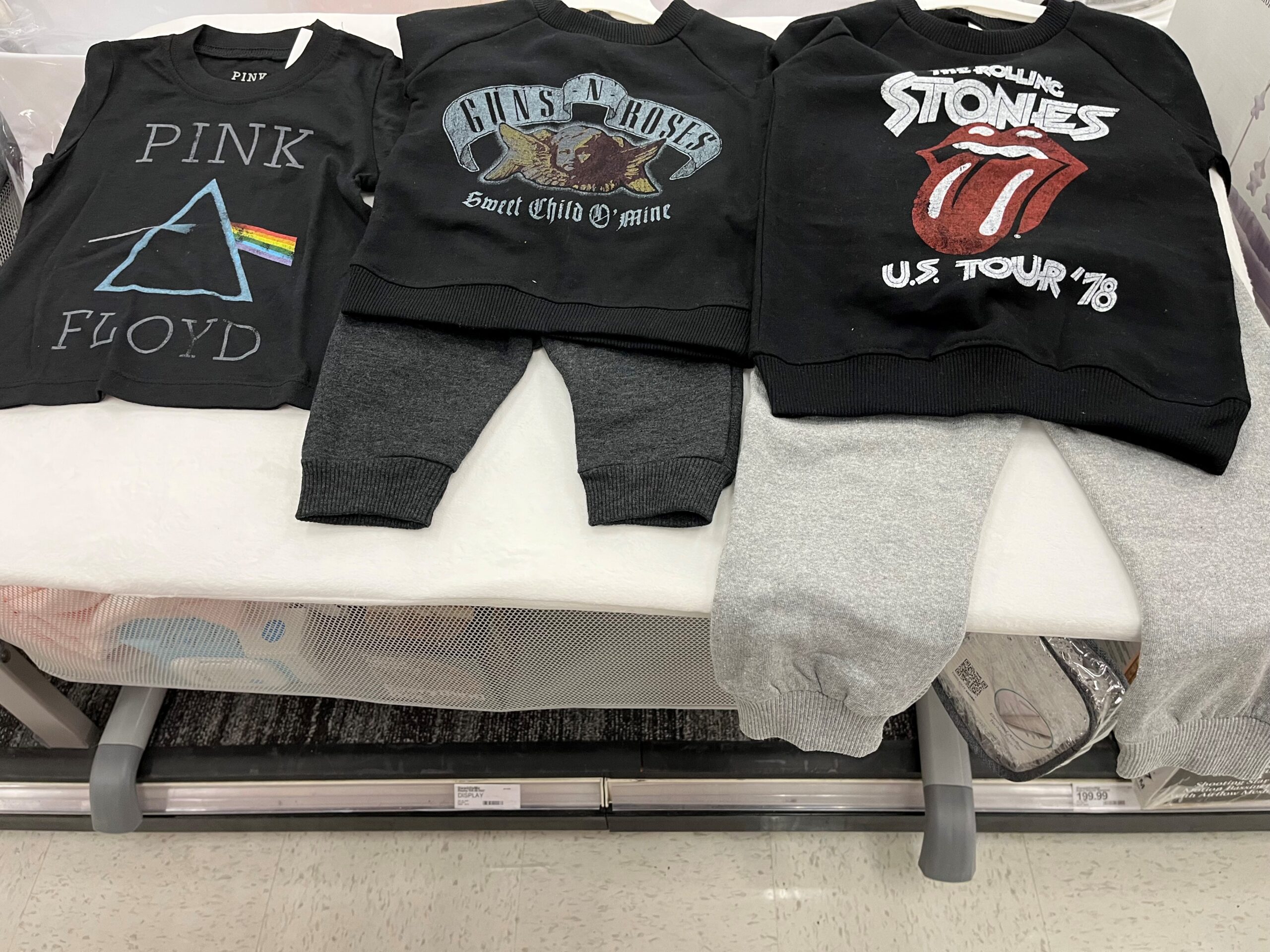
But you’re probably thinking this Classic Rock merch for little kids is being driven by overzealous parents or grandparents. If that’s true, how do we explain Paisley Gardener’s worship of Michael McDonald? She’s an 11 year-old in Iowa who should be waiting in line somewhere for Taylor Swift merch.
This short feature on CBS News from Steve Hartman explains this unlikely infatuation, leading to a tête-à-tête with McDonald.
While most tweens are obsessing over Taylor Swift and current chart-toppers, Paisley Gardner had someone else in mind: rocker Michael McDonald. After seeing the Doobie Brothers perform, the 11-year-old got the surprise of a lifetime. @SteveHartmanCBS is On the Road. pic.twitter.com/hBV177KJpZ
— CBS Evening News (@CBSEveningNews) July 7, 2023
But it’s not just music. Pop culture analysts note how Gen Z’s are bringing back products and styles from the past.
In a recent Business Insider story, Mary Hanbury and Avery Hartmans list several trends teens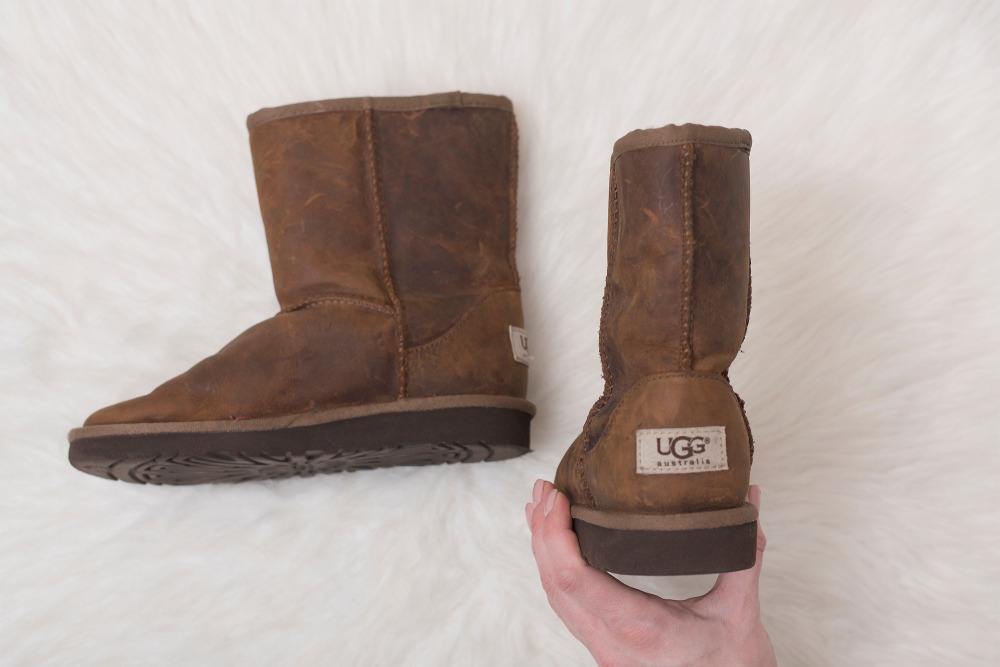 have rekindled – or brought “back from the dead.”
have rekindled – or brought “back from the dead.”
Velour track suits, Uggs, low-rise jeans, and Crocs are among the nostalgic fashion statement being made by Gen Z’s.
Brands are figuring out the marketing potential of using retro brands to appeal to young consumers.
Samsonite luggage is a great example. You cannot think of a more dated-looking product. But Marketing Dive reports the company has launched a new campaign geared right to Gen Z (and Millennials).
The tag line: “Travel Like Your Parents”
It’s a clever concept that melds nostalgia with envy. Here’s a new :30 TV spot steeped in images from the past:
Need more evidence? How about board games. Across generations, they remain an immensely popular way to pass the time with friends and family.
But would you believe the most popular board game among Gen Z is the retro favorite Candy Land? A study conducted in May by Cribbage Guides also reported Uno, Sorry, and Monopoly are also on their top five lists of favorite games. 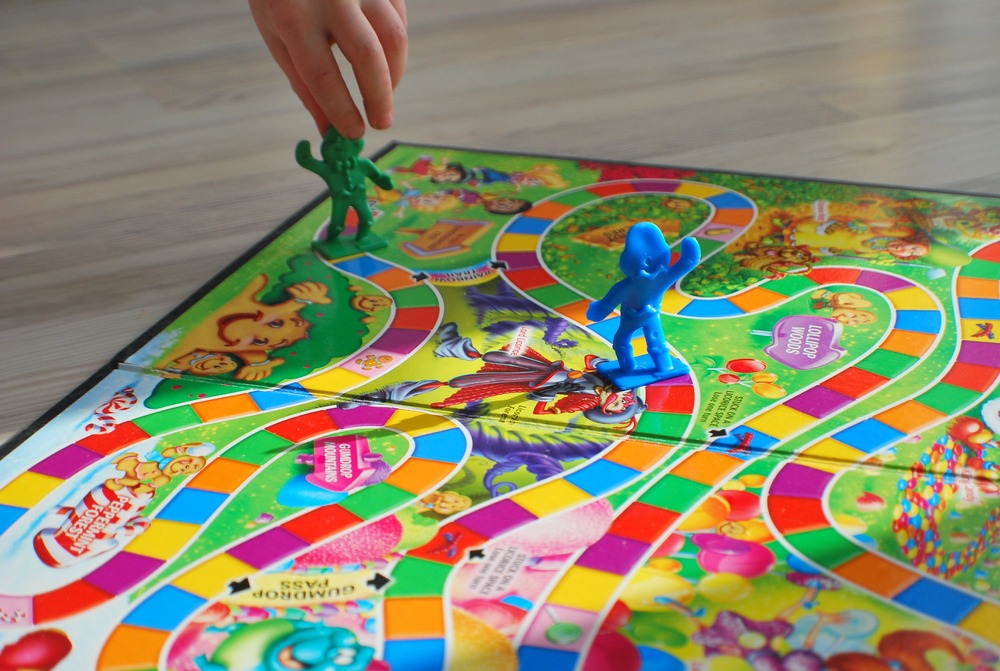
Now you might question whether teens’ penchant for games that are decades old is just a function of the fact they’re simply creative and fun.
But here’s the kicker:
A whopping three in four (73%) of respondents from all generations say they “miss games from their childhood.”
Gen Z’s are especially attached to their adolescent board games. Overall, 84% of these teens say they pine for the games they grew up with – the highest of the four generations included in the research. And three in four Z’s (76%) say board games help with their anxiety.
But despite this strong proclivity toward artifacts of older generations – including music – could Gen Z’s be enticed back to the radio? Sadly, there’s little evidence in the way of stations specifically geared to reach this unique community of young people.
So, we don’t know. But we can try to do a little dot connecting.
A look at the vinyl comeback over the years suggests Gen Z has had a hand in making it happen. An analysis from MRC back in 2021 in VMP by Kayla Griffith and Jillian Nguyen posed the question:
“What is Gen Z’s Role In Vinyl’s Resurgence?”
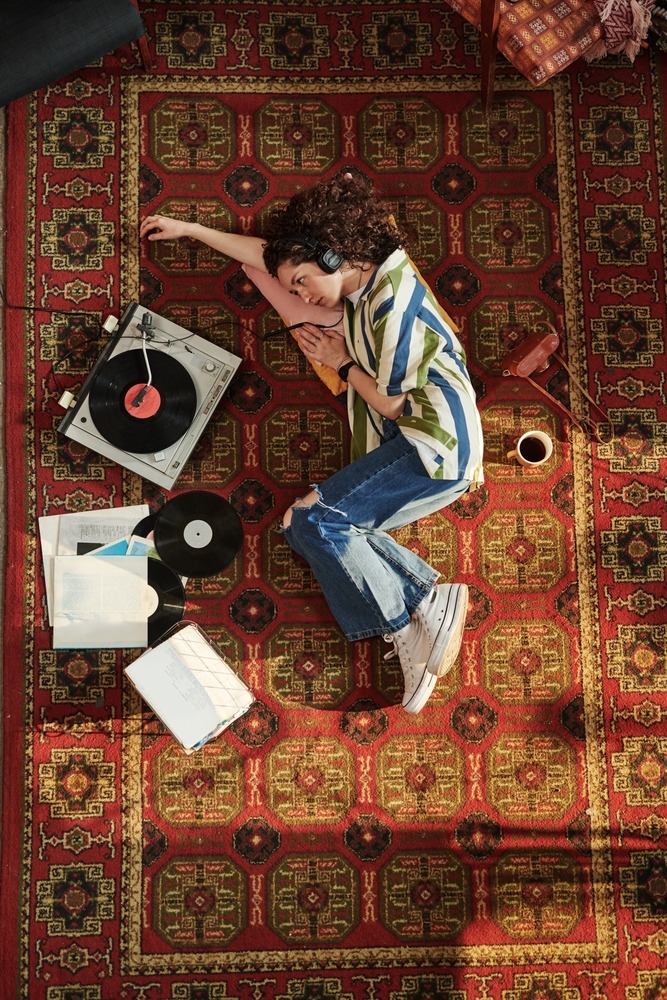 It not only points to data that support the connection between young people and music on vinyl, but quoted a number of actual Gen Z representatives enamored with the form, the packaging, and above all else, the authenticity of vinyl as a music platform. As 23 year-old Alex Ballard told MRC:
It not only points to data that support the connection between young people and music on vinyl, but quoted a number of actual Gen Z representatives enamored with the form, the packaging, and above all else, the authenticity of vinyl as a music platform. As 23 year-old Alex Ballard told MRC:
“I just thought it was cool to have this physical manifestation of the music I listened to, particularly now in the streaming world where you have access to so much music, which is awesome, but the music doesn’t feel like it’s yours. As someone who’s really into music, it’s cool to have this physical piece of it – to be like, ‘This is mine. This is in my collection.'”
We also saw this phenomenon when Jacobs Media conducted “The Millennial Project” in 2017, an ethnographic study that featured extended visits with young public radio listeners in their homes, condos, and apartments. We couldn’t help but notice how many had a turntable and vinyl records as part of their entertainment systems.
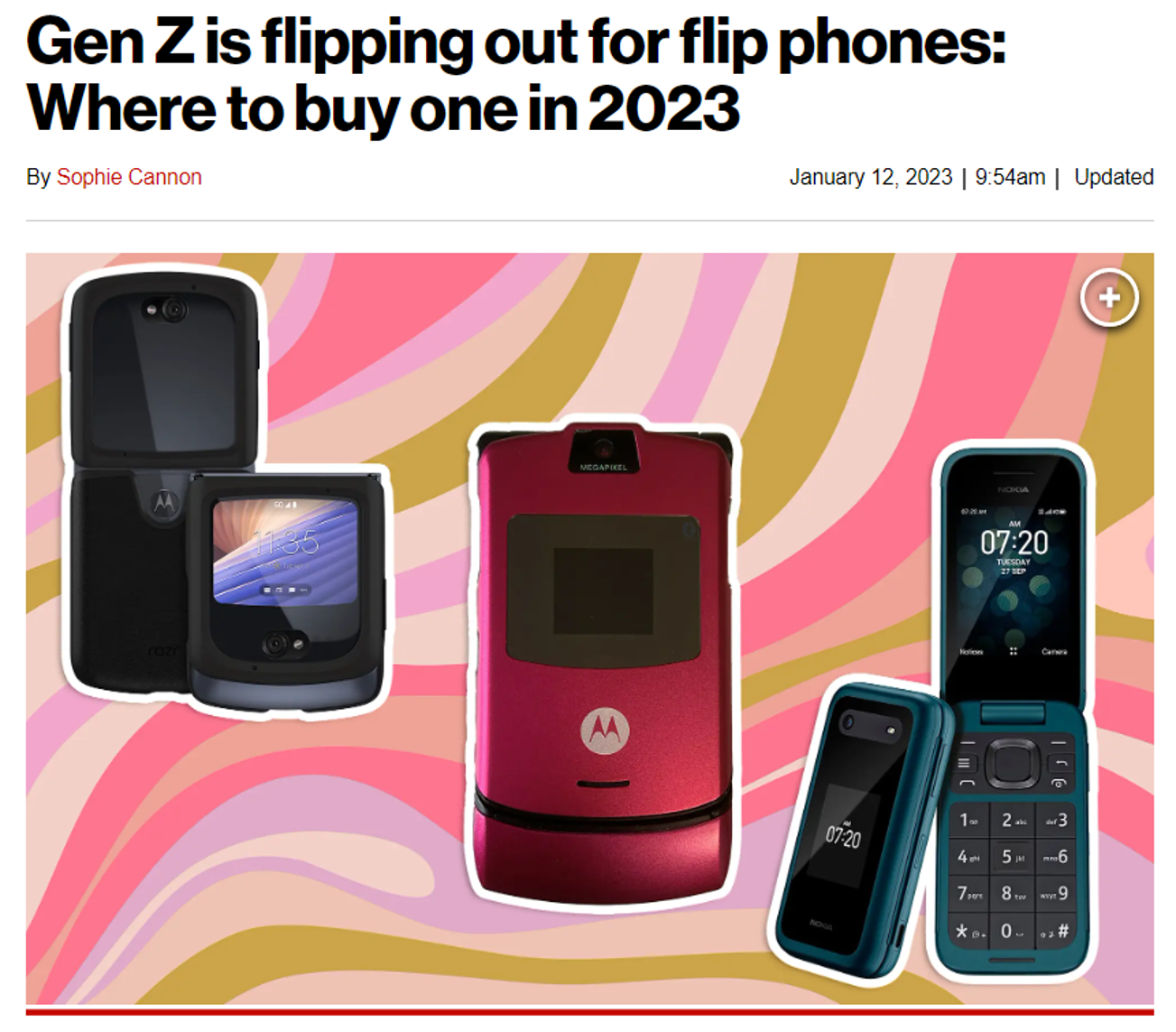 And I’ve written about the unlikely comeback of flip phones among young people in search of a different communications experience. There is no more retro technology than these throwbacks to the ‘9os. We saw them at CES a few years back, and now they’re being sold in phone stores everywhere.
And I’ve written about the unlikely comeback of flip phones among young people in search of a different communications experience. There is no more retro technology than these throwbacks to the ‘9os. We saw them at CES a few years back, and now they’re being sold in phone stores everywhere.
But luring teens back to FM radio? Is that even possible or is radio “a medium too far?” Has radio turned its back on teens to a point where it simply has no consideration in their media landscape?
We have scant evidence with which to make an intelligent call, other than this Gen Z habit of embracing older generations’ pop culture. Radio stations actually welcoming teens with talent that speaks their language and music that caters to their tastes are few and far between in the U.S.
But what of radio as a medium, its nature and uniqueness? We might be able to safely conclude commercial quantity is a serious barrier to sampling and listening. While their parents (and grandparents) may have become accustomed to 8-minute clusters of advertising all played in a row, teens themselves are used to listening to music free of ads and clutter. So, that may be a deal-breaker for radio.
On the other side, radio is free, a feature we know from our Techsurveys is a quality young people can get excited about, especially in a world where subscription fees have become onerous.
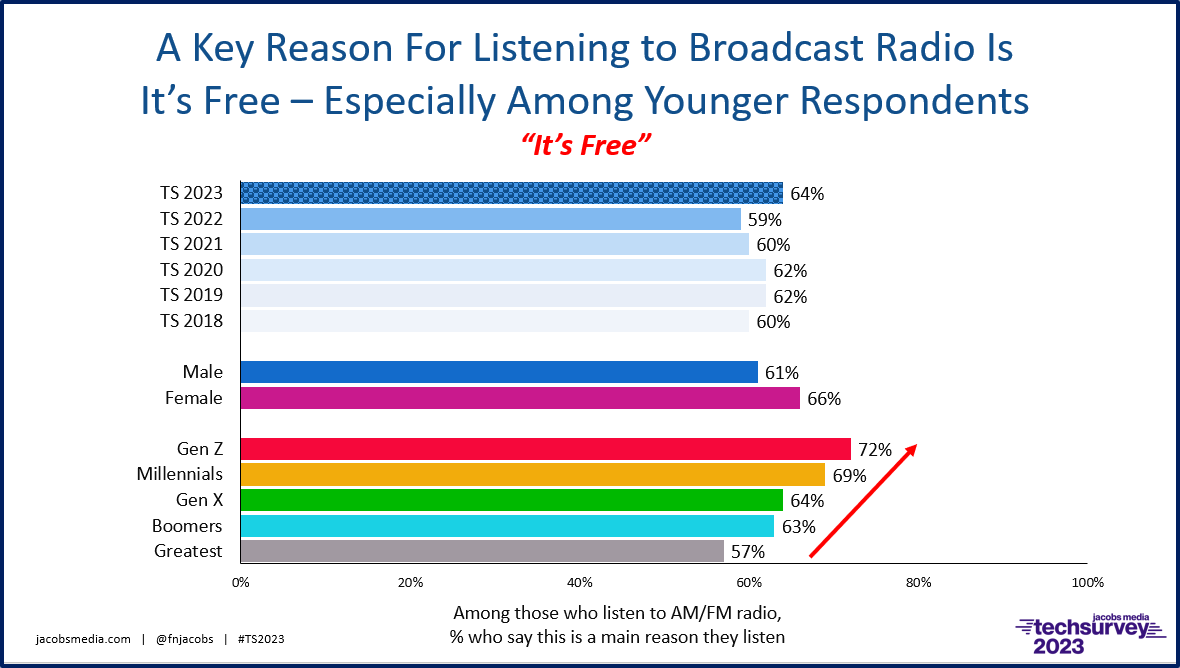
The curated nature of radio where someone else builds the playlists might also have an appeal. In the radio model, someone else is doing the heavy lifting which means there may be a surprise or two every hour or so.
But then there’s the companionship piece, and the other emotional underpinnings of radio that no other audio medium provides, including mood elevation and escape. These are qualities that could turn out to be appealing to a young generation that has already endured a devastating recession, a global pandemic, climate change, and political turbulence that’s off the charts.
A medium that speaks to them, entertains them, and makes an effort to understand them might have a shot. And like past generations, Z’s move in waves. When something gets hot, it has the tendency – as we know – to go viral.
Radio? Viral?
Seems unlikely. But we’re about to see whether a popular doll from the ’60s and a quantum physicist from the ’40s have a chance to capture the collective imaginations of multiple generations, including Z’s.
including Z’s.
As we learned last week with the surprise shuttering of All Access, the radio broadcasting industry in the U.S. is losing its viability and marketing power in the eyes – and spreadsheets – of the music industry.
As has always been the case, trendlines start with young people, whether they embrace “the new new thing” or a piece of pop culture nostalgia from their parents’ and grandparents’ past.
For FM radio, this isn’t just a good idea – it’s the pathway to a promising future.
(Why do I suddenly feel like playing a game of Candy Land?)
- What To Do If Your Radio Station Goes Through A Midlife Crisis - April 25, 2025
- A 2020 Lesson?It Could All Be Gone In A Flash - April 24, 2025
- How AI Can Give Radio Personalities More…PERSONALITY - April 23, 2025




Your comment that we don’t research teens or find ways to serve them in Radio resonates with me. When we were young the (local) radio owners often found a way to provide programming to us even though we were not yet a viable market. Today’s (corporate) owners don’t have time for that. If we want Gen-Z to listen to radio, we need to know what they want to hear and provide it. Tommorrow will be too late.
We’re in-synch there, Thom. And I don’t think Z’s are all that mysterious. We in radio just need to commit to asking the right questions, and really listening to what they have to say. This is a process radio has done well for decades. Good to hear from you.
The “because it’s free” aspect does resonate well for radio when reaching the Gen Z listener. The first wave of Gen Z is starting to graduate, go out on their own, etc…and they are facing the same realities that all of us regardless of our age experiences when we make that transition: The world is a very expensive place. Like most of us, subscription fatigue is usually the first thing addressed when there is belt tightening in a household due to job change, recession or change in living situation. Radio needs to position itself as this “free” medium of entertainment not only to entertain, but to inform. Sales staffs should be courting those advertisers that are competing for the dollars these “kids” are going to be spending on essential items that they will be needing to purchase to set themselves up in their “new” lives as they transition to becoming independent adults. Individually, they don’t have the purchasing power right now to move the needle much, but their sheer numbers demographically speaking, will reshape many industries including our own. Gen Z is a fast moving train and right now, you’re either on the train or off the train. They are also very quick to throw you off that train if what you offer is condescending or disingenuous.
From a statistical/human behavior standpoint though, a question in regards to the research has to be this: Does every generation, at a certain point, go through a nostalgic period? …and if so are Gen Zers more nostalgic at the age they are now versus the other demographic groups when they were this same age?
We’re on the same page with “free,” Kurt. For radio, it’s a steel sword we leave in the sheath.
As for nostalgia, each generation has its own marker(s). But it does strike me subjectively that Z’s are already going through this. As a 16 year-old, I don’t remember pining for the “good old days.” The new stuff (back in the late 60’s) was more than enough to capture my interest and attention.
This doesn’t surprise me as much as it would a lot of programming and management types who have trouble expanding their mindset. If I may, I would like to relate what my liner guy, Gene Knight (a San Diego market top-40 legend) said about contest winners he talked to when he was at Classic Hits “Sunny 98.1”:
“All the time we got winners and other listener responses at KXSN, from people who were born in the 80s. Like, they were just two years old when a lot of the songs that we played were currents. This happened so frequently, that I started asking, in a nice and curious way, why they liked our music. This response came back over and over again … The 80s, that’s when all the good music came out!”
So, yeah. They’re receptive to the music and the Techsurvey proves that more than half of them embrace a free of charge delivery method.
Sounds like our challenge is to make them aware of our presence.
KM, among other things, top of mind awareness for most radio stations – and radio, in general – is bad, and getting worse. I appreciate your story about nostalgia, and the music each generation cherishes. Thanks for checking in.
Great post, thanx.
As I’m part of the original Classic Rock generation…MTV was amazing. Seeing the video WITH the music was mind blowing. The experience was like listening to the radio (the format). It was familiar.
I can’t ever recall 8 minute commercial breaks on the Big 89 or Super ‘CFL in Chicago. I remember 3-5 songs and a 3 minutes of commercials. Promo, spots, PSA, jingle and back to music.
I could sing the jingle for the pimple cream today or recite the tag for the drag strip. There is your repetition that marketing aims for.
Regarding stop sets: this goes back to the age old war: programming vs sales.
One last thought….radio, at the moment, has lost the war on FM chips in smartphones.
Jerry, it is most definitely a different day and time. And our nostalgia for those good old days may be enhanced a bit by fading memories. Thanks for the comment.
Fred I really loved this one a lot! The inclusion of the video clips really made it over the top. Steve Hartman’s “On The Road” features always get my eyes wet.
This one was no different. Great stuff. I never saw that Samsonite TV spot either and boy it was really creative. There is such a dearth of greatness in broadcasting anymore that when we see or hear it on the air, it gives us a reason for celebration.Thanks for always thought provoking writings. See ya in Dallas at the Boot Camp. It’s the last one I’m gonna video.
I’ll be at Boot Camp with bells on, Art. Thanks for the kind words.
WOW! The Steve Hartman piece with Michael McDonald uber-fan Paisley Gardner was wonderful! Guess you could say he really DID come from “somewhere back in her long ago”! Fun, beautiful, sweet! Thanks for including it as part of this always important topic for the future of radio.